Foldable devices have introduced a new era of innovation and user experience in the Android ecosystem. These devices offer unique form factors with flexible displays that can adapt to various usage scenarios. To fully leverage the potential of foldable devices, Google has introduced Foldable APIs, a set of powerful tools and features that enable developers to create engaging and seamless experiences for users.
Understanding Android Foldable APIs
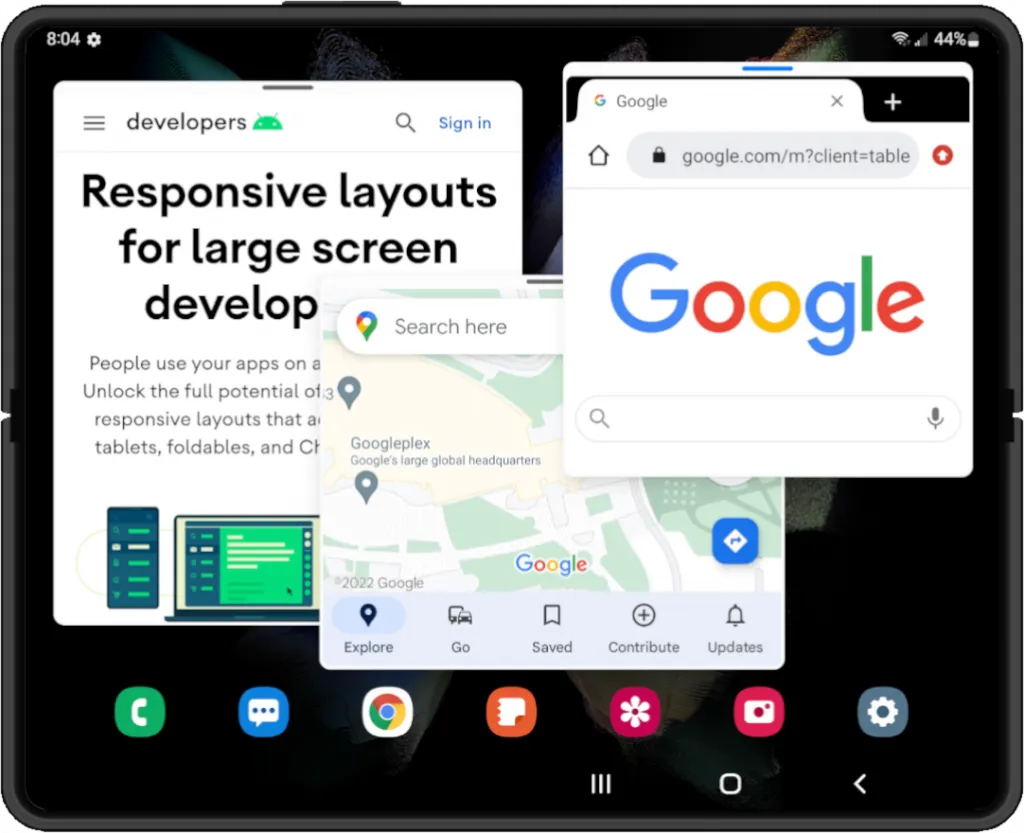
Android Foldable APIs provide developers with a comprehensive set of tools to adapt their apps to foldable devices. These APIs enable developers to detect and respond to changes in device configuration, such as folding, unfolding, or transitioning between different modes (ie. single-screen, dual-screen). By utilizing Foldable APIs, developers can optimize their apps for multi-window workflows, resizable layouts, and enhanced user interactions on foldable devices.
Key Features And Capabilities Of Android Foldable APIs
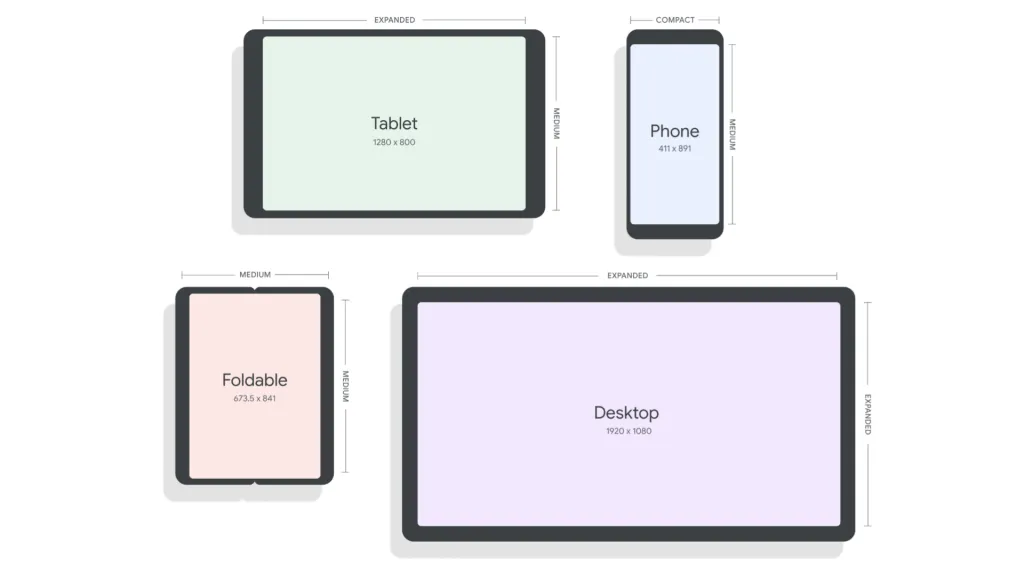
Screen Continuity
- Foldable APIs allow developers to seamlessly transition between different screen configurations and adapt the app’s layout and content accordingly
- Developers can handle events like folding and unfolding, preserving app state and providing a consistent user experience
Multi-Window Support
- Foldable APIs enable developers to design apps that can span across multiple screens, taking full advantage of the larger display real estate on foldable devices
- Developers can create multi-window experiences, allowing users to interact with multiple app components simultaneously
Hinge And Display Metrics
- Foldable APIs provide access to hinge angle and display metrics, enabling developers to dynamically adjust the app’s layout and behavior based on the device’s physical characteristics
- Developers can optimize their apps to utilize the full potential of foldable devices and provide a seamless experience regardless of the device’s posture
Implementation Techniques And Best Practices
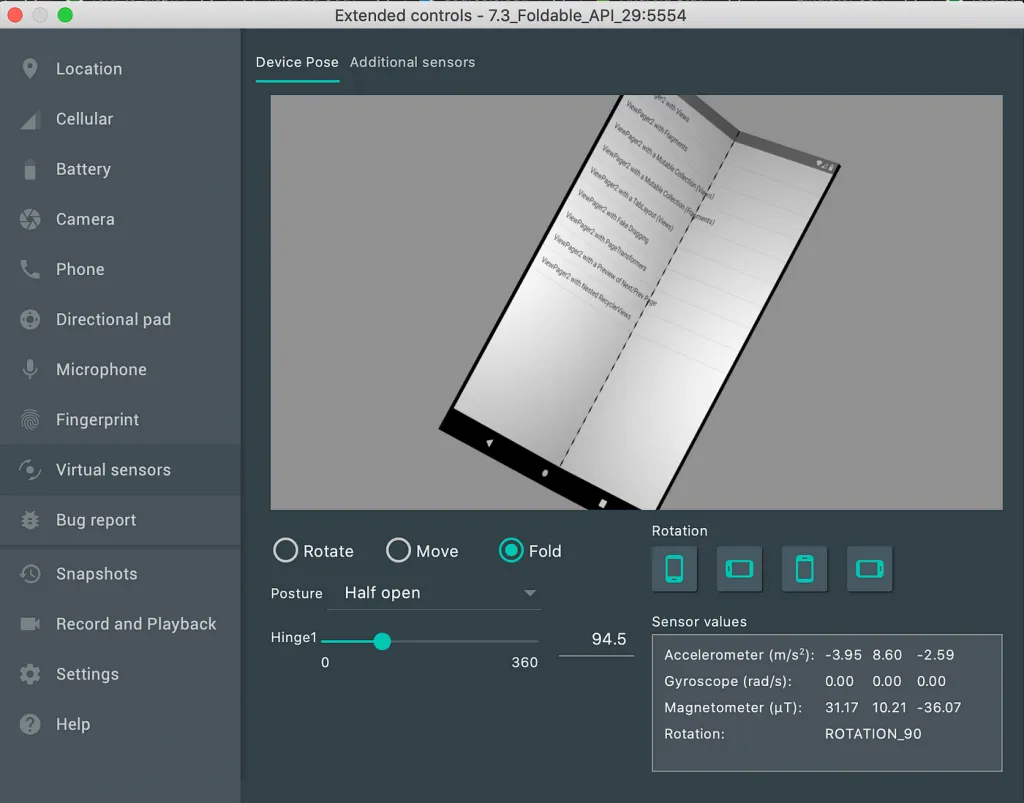
Configuring The Manifest
- Update the manifest file to declare support for foldable devices and specify the app’s behavior for different screen configurations
- Use the <supports-screens> and <compatible-screens> elements to ensure compatibility across various foldable device models
Handling Configuration Changes
- Implement appropriate lifecycle callbacks and listeners to detect and respond to changes in device configuration, such as folding and unfolding events
- Dynamically update the app’s layout, resources, and user interface to adapt to different screen modes
Multi-Window Layouts
- Design responsive layouts that can adapt to multiple windows, taking advantage of the expanded screen real estate
- Utilize ConstraintLayout or other adaptive layout techniques to ensure proper rendering and usability in multi-window scenarios
Latest Advancements And Resources
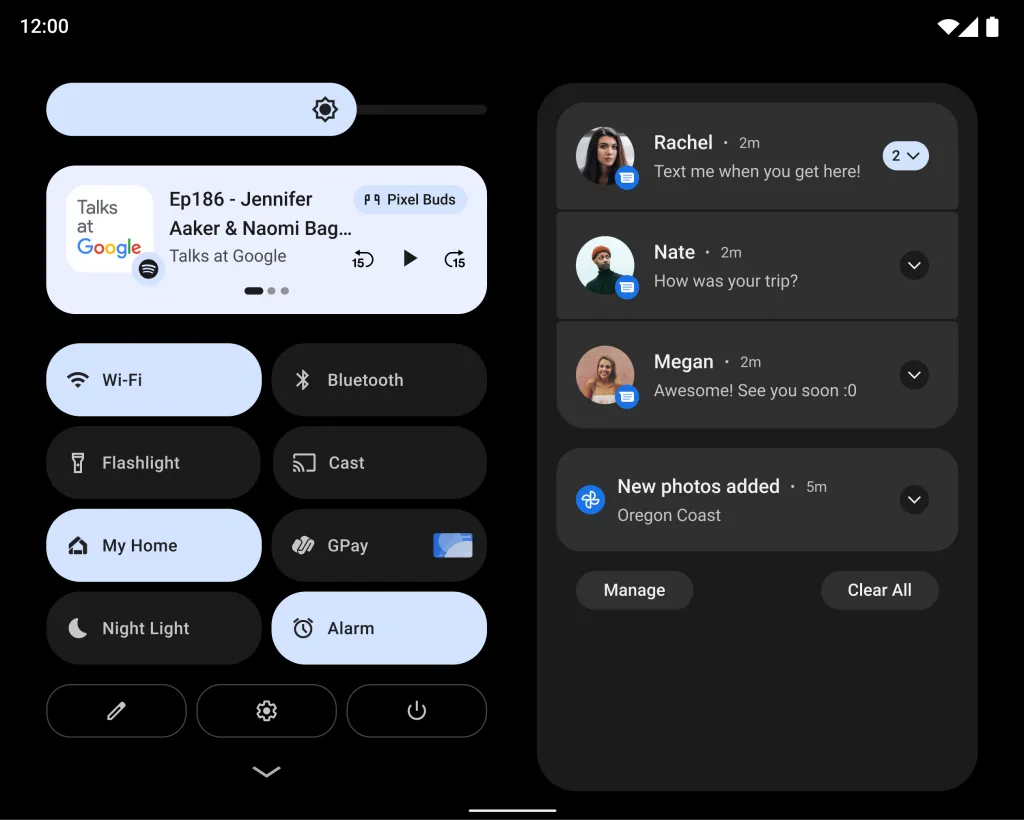
Jetpack WindowManager
- The Jetpack WindowManager library provides additional utilities and compatibility enhancements for working with foldable devices
- It offers features like window layout stability, window metrics listener, and compatibility checks
- https://developer.android.com/jetpack/androidx/releases/window
Google Developer Documentation
- Explore the official Android developer documentation for Foldable APIs, which includes guides, samples, and code snippets to aid implementation
- https://developer.android.com/guide/topics/ui/foldables
Foldable Device Emulators And Hardware
- Take advantage of the foldable device emulators provided by Google for testing and development purposes
- Consider acquiring or accessing actual foldable devices to validate and optimize your app’s behavior on real hardware
- https://developer.android.com/guide/topics/ui/foldables/emulator
Closing Thoughts
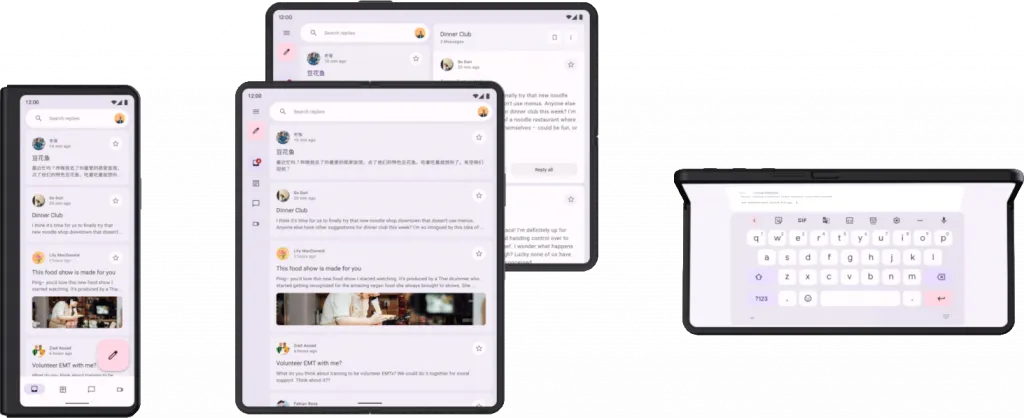
Android Foldable APIs empower developers to create immersive and adaptable experiences for foldable devices. By leveraging the capabilities of Foldable APIs, developers can optimize their apps for multi-window workflows, responsive layouts, and seamless transitions on foldable devices. Stay up to date with the latest advancements, documentation, and community resources to unlock the full potential of Android Foldable APIs and provide exceptional user experiences on these innovative devices.